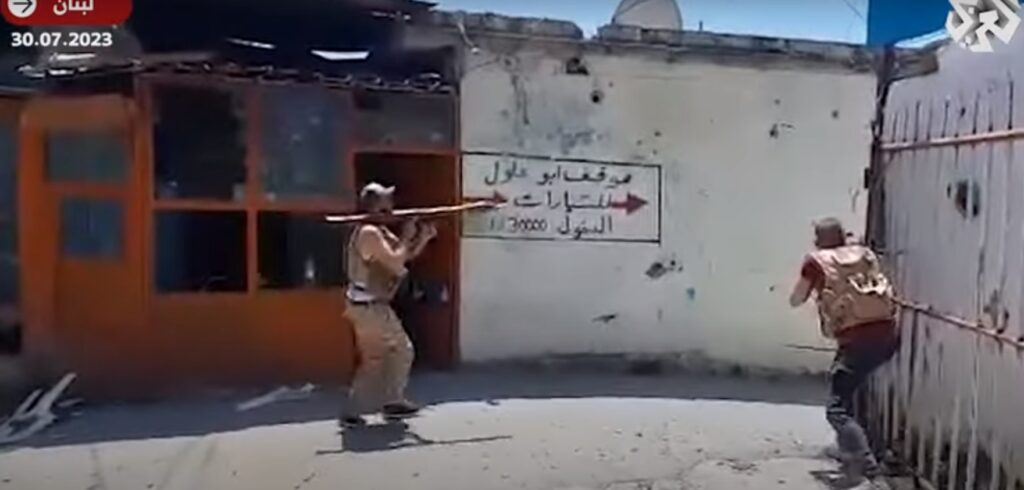The Ein Al-Hilwe refugee camp in Lebanon witnessed battles involving fighters from the Fatah movement and various Islamic groups, including Jund al-Sham, Fatah al-Islam, and ISIS militants from Syria.
The ongoing conflict has resulted in nine fatalities and approximately 40 others wounded.
Though a ceasefire was established through the intervention of the Lebanese government, Hezbollah, and the Amal movement, it remains fragile and tenuous.
Tragically, during the fighting, General Abu Ashraf Alaramoshi, a prominent Fatah movement member and commander of the national security forces in Sidon, lost his life to gunfire.
According to senior officials in Lebanon, the conflict in the camp erupted after Palestinian intelligence chief Majed Faraj’s recent visit to Beirut, where he met with high-ranking officials from the Lebanese government.
The Palestinian Authority is aiming to consolidate its control within the refugee camps in Lebanon, thwarting attempts by jihadist Islamic groups and Hamas to take over these camps.
Additionally, the PA seeks to establish new leadership within the Fatah movement, thereby neutralizing the power centers affiliated with Muhammad Dahlan, a bitter political rival of PA Chairman Mahmoud Abbas.
Chairman Abbas is determined to bolster his standing among Palestinian refugees in Lebanon.
Lebanese sources have reported that Majed Faraj brought a substantial sum of money to Lebanon to win support from Fatah movement activists in the refugee camps.
In his meetings with Lebanese government officials and intelligence, Faraj made several demands, including:
- Strengthening the Lebanese government’s supervision over the refugee camps to prevent the transfer of fighters and knowledge of rocket production from Lebanon to Judea and Samaria.
This is perceived as detrimental to the interests of the Palestinian people.
The PA is apprehensive about Hamas and Iran’s efforts to establish terrorist infrastructures in northern Samaria, producing rockets targeted at Israel.
Senior PA officials fear this could serve as a pretext for Israel to annex Judea and Samaria, citing the PA’s inability to control the security situation.
- Disarming all armed groups in the refugee camps in Lebanon.
- A request for the Lebanese government to restrain Bassel Al-Hassan from interfering in the events within the refugee camps.
Al-Hassan was appointed by the Lebanese government as the head of the Lebanese-Palestinian Dialogue Committee.
Majed Faraj is expected to return to Lebanon soon to continue discussions with the Lebanese government.
Hezbollah and Hamas are concerned about his activities, viewing them as serving the interests of Israel and the US.
They believe the PA is attempting to seize control of power centers in the Palestinian refugee camps in Lebanon by injecting funds and recruiting new loyalists for the PA’s head.
Over the last two years, Hamas has established a military infrastructure in southern Lebanon, comprising activists from the movement’s refugee camps.
This military infrastructure, under the command of Saleh al-Arouri, the deputy of Ismail Haniyeh and a contact person for Hezbollah and Iran, has launched multiple rocket attacks on Israel during this period.
Lebanese analysts predict that the PA’s recent activity in the refugee camps will likely lead to further bloody clashes among the various armed groups operating within them.




